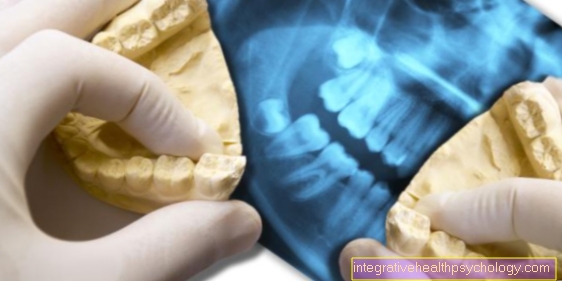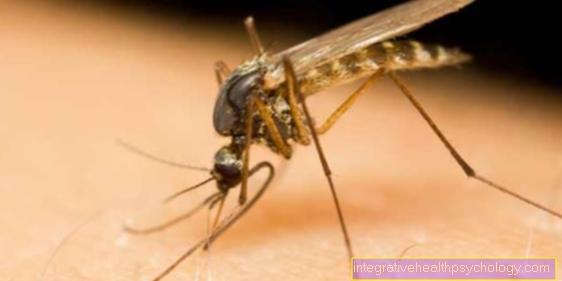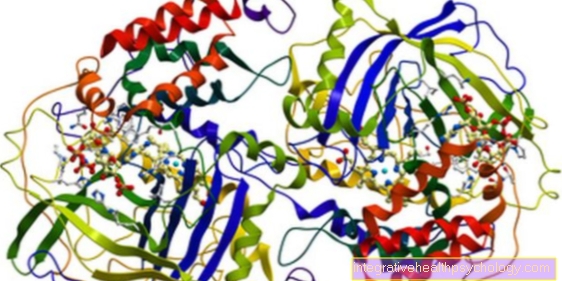Numbness of the lip
introduction
Numbness of the lip is a sensory disorder. The sensitive nerve endings in the skin have problems perceiving sensory stimuli in the area of the lip and transferring them to the central nervous system (the brain).
So numbness is a neurological disorder. It can have various causes. However, it is usually short-lived and disappears on its own without special treatment.

The possible causes
There are many causes of lip numbness. The numbness is a nerve disorder. Somewhere along their course from the skin to the central nervous system, these nerves are damaged. This can be in the immediate vicinity of the skin area to be treated, i.e. the lip.
Then, for example, inflammation in the area of the paranasal sinuses or teeth is the cause. Even after a local anesthetic at the dentist's, the lip may feel numb. This is desired to a certain extent: in this way the patient is relaxed and the dentist can treat painlessly. However, the numbness should subside after a few hours.
In addition to harmless causes, numbness can also occur due to damage to the brain, as is the case with a stroke.
Also read the article on the topic: Numbness of the face
Sinus infection as the cause
Sinusitis can also cause a sensory disturbance in the lip area. The nerve that innervates the skin in this area partly runs very close to the paranasal sinuses. If these are inflamed, the inflammation can also spread to the nerve and damage it. The result is numbness in the area of the lip.
That is why you should consult an ear, nose and throat specialist if you have symptoms.
For more information, read on: Sinus infection.
The toothache as the cause
Toothache can also be accompanied by numbness of the lip. If there is inflammation in the teeth area it leads to pain. If the inflammation spreads to their surroundings, nerves in this area can be damaged. You can then no longer fully perceive their function of stimulus transmission.
The area that they originally supplied, i.e. the skin on the lip, appears "numb" to the patient because the brain no longer receives any emotional stimuli from this part.
More information on the subject Toothache you'll find here.
The whiteness tooth operation as the cause
A whiteness tooth operation is usually performed with local anesthesia. After the injection, numbness in the lip area is normal and important so that the dentist can remove the whiteness teeth painlessly.
However, the numbness should subside after a few hours. If this is not the case, there are several options. It is possible that a nerve was injured during the operation or that inflammation has spread to the surgical area after the operation. Therefore, if you feel numb on your lip after a whitening tooth operation, you should definitely consult the doctor who performed the operation.
The stroke as the cause
In addition to harmless causes, numbness of the lip can always be an indication of a stroke. This mainly depends on the accompanying symptoms.
Alarm signs are numbness that occurs together with speech or visual disturbances or those that spread to the entire side of the body in addition to the lip. Sudden symptoms of paralysis and severe headaches are also warm signals.
Since numbness is a nerve disorder, it should never be taken lightly. Often the causes are harmless, but since a stroke can also be behind it, it is important to see a doctor.
What are the signs of a stroke? Find out more here.
Other accompanying symptoms
Since the causes of numbness in the lip area are very diverse, a wide variety of accompanying symptoms are also conceivable.
In addition to numbness, other neurological symptoms such as speech or vision disorders and sudden symptoms of paralysis occur during a stroke.
Pain in the sinus area or toothache can also be accompanying symptoms. Then the cause of the numbness can usually be found in this area. Often it is caused by inflammatory processes.
Pain as a symptom
A feeling of numbness is usually perceived as very unpleasant by the patient. Some already describe this discomfort as painful. However, facial pain can also occur as an accompanying symptom. Often these can then be specified more precisely as toothache or pain in the sinus area.
Even with certain forms of migraine with aura, the patient suffers from numbness and pain in the face. Pain in the face is therefore an important accompanying symptom to find out the cause of the numbness.
The diagnosis
Diagnosing numbness around the lip is usually easy. The patient already reports on these symptoms in the anamnesis (medical history).
In the physical examination, the numb area can be narrowed down more precisely. In addition, the doctor can determine other accompanying neurological symptoms. This provides the first clues as to the cause of the sensitivity disturbance.
Depending on the cause, the doctor will decide whether further examinations (e.g. laboratory examination, measurement of the nerve conduction velocity, cross-sectional imaging using CT or MRT) are necessary.
I.Find out all about the topic here: The sensitivity disorder.
The therapy
Treatment for lip numbness will depend on the underlying condition in each case. Generally valid statements are therefore difficult to make because the causes are also very diverse. They range from a stroke to psychosomatic complaints.
A stroke is an emergency. The patient must be treated immediately in a neurological clinic. In migraines, numbness is only an accompanying symptom. The headache can be treated with pain relievers.
In the case of psychosomatic causes, stress reduction, relaxation methods or psychotherapy are used in the treatment.
In the case of inflammation in the area of the paranasal sinuses with a feeling of numbness, the infection must be treated with antibiotics as soon as possible. If toothache occurs as an accompanying symptom, a visit to the dentist is necessary. Depending on the cause of the toothache, the patient is treated accordingly there.
Treating lip numbness is only effective if you know the cause. The treatment of numbness is therefore very complex.
Read more about therapy here:
- a stroke
- a migraine
- a sinus infection
The duration
How long lip numbness lasts is difficult to say. It depends on its cause. In general, however, it can be stated that the numbness is mostly temporary and short-lived.
Permanent numbness of the lip occurs when the cutaneous nerve is completely severed. This can be the case after dental or maxillofacial surgery. However, other skin nerves gradually take over the sensitive supply in this area. This at least makes the “deaf” area smaller.
Even with a stroke, numbness of the lip can persist if the patient is not treated quickly and adequately. In this case, the symptoms do not subside.
Prognosis
The prognosis for numbness around the lip is usually good. In many cases healing occurs. The unpleasant sensation disappears again without treatment. If more serious illnesses are the cause of the numbness of the lip, it is important to diagnose them quickly and treat them promptly.
This is also very important for the prognosis in the case of a stroke, for example. The same applies to inflammation in the sinuses and teeth.


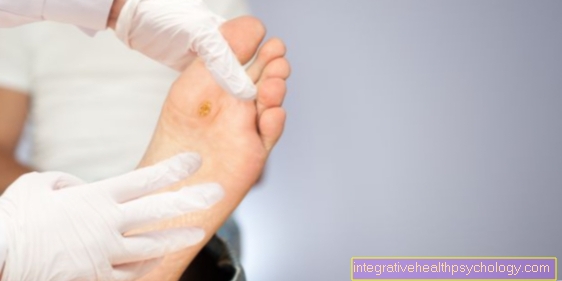


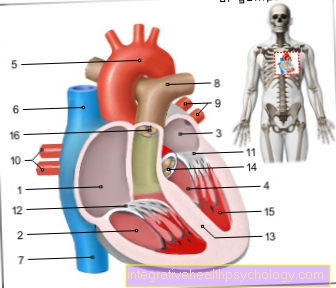

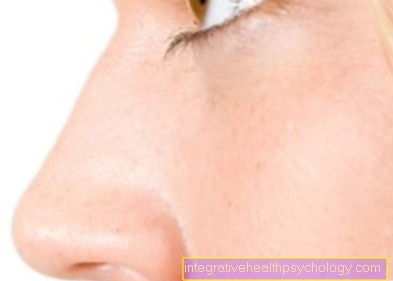

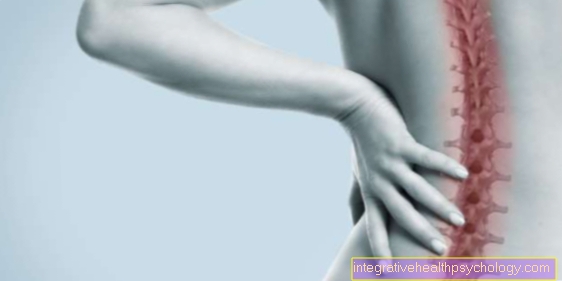

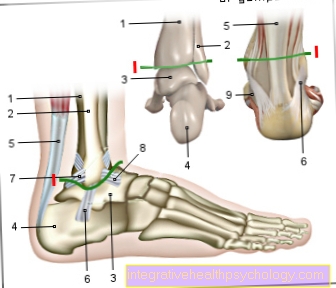


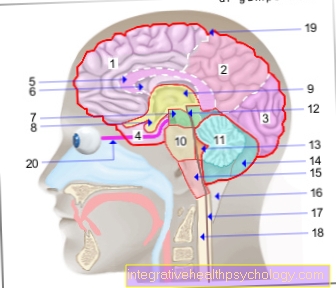

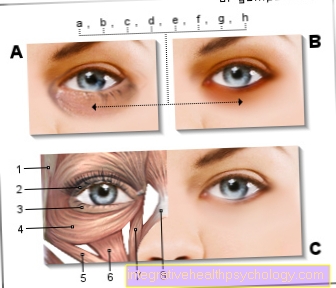

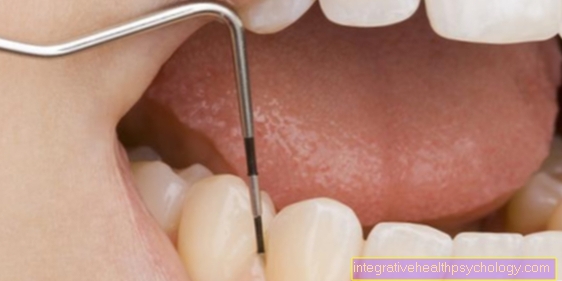

.jpg)
